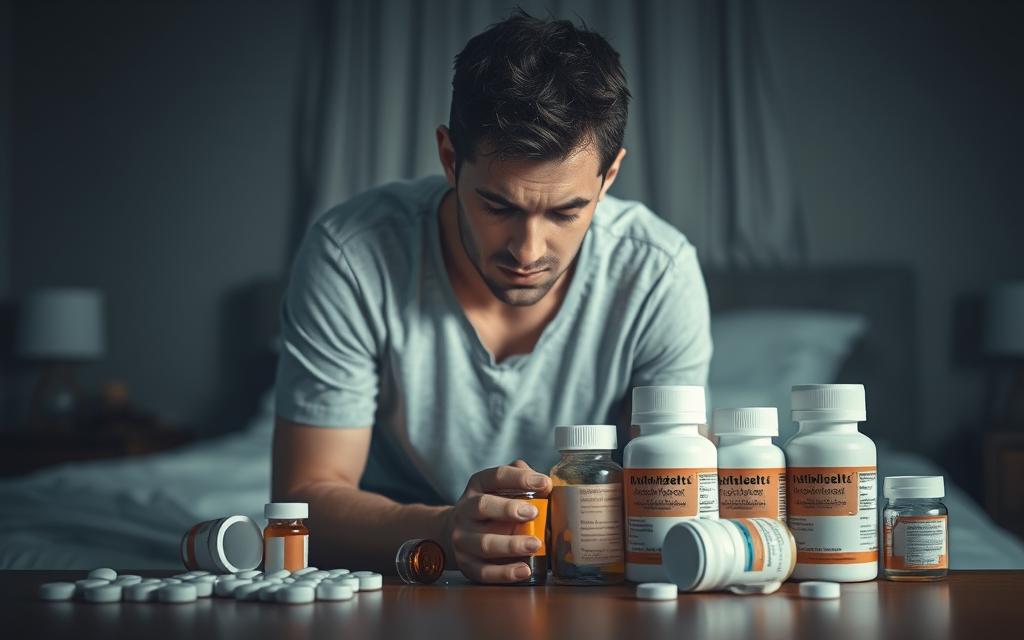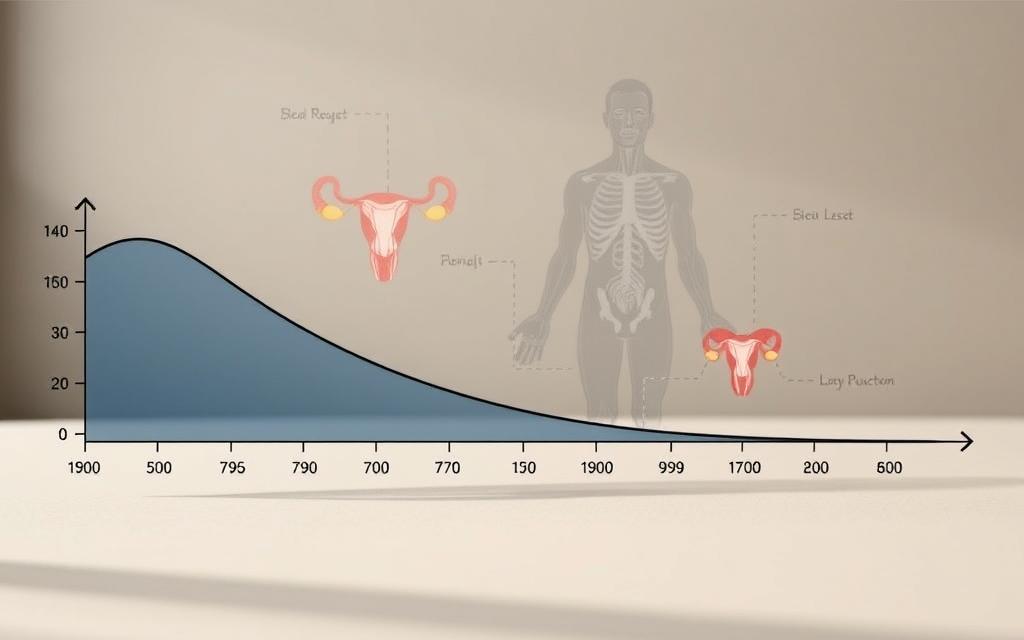Does Sinimet Help Erectile Dysfunction? Exploring the Connection and Effectiveness
Antidepressants, such as duloxetine, are commonly prescribed to manage depression and anxiety disorders. However, their impact on sexual health has raised concerns among patients and healthcare providers. The relationship between antidepressants and erectile dysfunction is complex, with some studies suggesting a potential link.
Cymbalta and sexual side effects is crucial for individuals considering this medication. While Cymbalta is effective in managing depression, its potential effects on sexual function cannot be overlooked.
Exploring the effectiveness of Sinimet in addressing erectile dysfunction requires a comprehensive understanding of the underlying causes and the interplay between antidepressants and sexual health.
Understanding Cymbalta and Its Primary Uses
Understanding Cymbalta involves looking into its composition, uses, and mechanism of action in the body. Cymbalta, known generically as duloxetine, is a medication that has been widely prescribed for various medical conditions.
What is Cymbalta (Duloxetine)?
Cymbalta is an antidepressant that belongs to a class of medications known as serotonin-norepinephrine reuptake inhibitors (SNRIs). It’s designed to help balance certain chemicals in the brain that affect mood and other bodily functions.
Approved Medical Uses for Cymbalta
Cymbalta is approved for treating several conditions, including:
- Major depressive disorder (MDD)
- Generalized anxiety disorder (GAD)
- Fibromyalgia
- Neuropathic pain
- Chronic musculoskeletal pain
How Cymbalta Works in the Body
Cymbalta operates by influencing the levels of two key neurotransmitters in the brain: serotonin and norepinephrine. Its primary mechanism is through the inhibition of the reuptake of these neurotransmitters.
Serotonin and Norepinephrine Reuptake Inhibition
By inhibiting the reuptake of serotonin and norepinephrine, Cymbalta increases the levels of these neurotransmitters available for synaptic transmission. This action helps improve mood, reduce pain perception, and alleviate symptoms of depression and anxiety.
This mechanism is crucial for understanding both the therapeutic effects and potential side effects of Cymbalta, including its impact on sexual function.
Does Cymbalta Cause Erectile Dysfunction?
Investigating whether Cymbalta causes erectile dysfunction requires examining clinical evidence and research findings. Cymbalta, known generically as duloxetine, is a serotonin-norepinephrine reuptake inhibitor (SNRI) used primarily to treat depression, anxiety disorders, and certain types of chronic pain.
Clinical Evidence and Research Findings
Several studies have explored the relationship between Cymbalta and sexual dysfunction, including erectile dysfunction. A comprehensive review of clinical trials and observational studies provides insight into the prevalence and characteristics of sexual side effects associated with Cymbalta.
Research indicates that Cymbalta erectile dysfunction is a potential side effect, although the incidence varies among individuals. A study published in the Journal of Clinical Psychopharmacology found that sexual dysfunction occurred in a significant percentage of patients treated with duloxetine.

Prevalence Rates of Sexual Side Effects
The prevalence of sexual side effects, including erectile dysfunction, among patients taking Cymbalta is a critical consideration. Studies suggest that SNRIs like Cymbalta may have a different sexual side effect profile compared to SSRIs (selective serotonin reuptake inhibitors).
- A meta-analysis comparing SNRIs and SSRIs found variations in the rates of sexual dysfunction among different antidepressant classes.
- The incidence of antidepressant erectile dysfunction with Cymbalta was reported to be significant but varied across studies.
Comparing Cymbalta to Other Antidepressants
When evaluating the risk of erectile dysfunction associated with Cymbalta, it’s essential to compare it with other antidepressants. This comparison helps in understanding the relative risks and benefits.
SSRI vs. SNRI Sexual Side Effect Profiles
The difference in sexual side effect profiles between SSRIs and SNRIs is a topic of interest. While both classes can cause sexual dysfunction, the mechanisms and incidence rates may differ.
| Antidepressant Class | Examples | Sexual Side Effects |
|---|---|---|
| SSRI | Fluoxetine, Sertraline | Higher incidence of sexual dysfunction |
| SNRI | Cymbalta (Duloxetine), Venlafaxine | Generally lower incidence compared to SSRIs, but still significant |
Understanding these differences is crucial for informed decision-making regarding antidepressant treatment, especially for individuals concerned about sexual side effects.
The Mechanism Behind Sexual Side Effects
Cymbalta’s impact on sexual function is multifaceted, involving serotonin and other neurotransmitters. To understand why Cymbalta can cause sexual side effects, it’s essential to explore the underlying neurochemical mechanisms.
How Serotonin Affects Sexual Function
Serotonin is a neurotransmitter that plays a crucial role in regulating various physiological and psychological processes, including mood, appetite, and sexual function. Selective serotonin reuptake inhibitors (SSRIs), like Cymbalta, increase serotonin levels in the brain. While this can help alleviate depression, it can also affect sexual function. Research suggests that increased serotonin levels can inhibit sexual arousal and orgasm by affecting the neural pathways involved in sexual response.
Neurochemical Pathways Involved
The neurochemical pathways involved in sexual function are complex and involve multiple neurotransmitters, including serotonin, dopamine, and norepinephrine. Cymbalta, as a serotonin-norepinephrine reuptake inhibitor (SNRI), affects both serotonin and norepinephrine levels. The interplay between these neurotransmitters can influence sexual function. For instance, while serotonin can inhibit sexual arousal, norepinephrine can have a positive effect on sexual function by increasing arousal.
- Serotonin: inhibits sexual arousal and orgasm
- Dopamine: involved in the regulation of sexual desire and pleasure
- Norepinephrine: can increase sexual arousal
Individual Risk Factors
Not everyone taking Cymbalta will experience sexual side effects. Individual risk factors play a significant role in determining the likelihood of these effects. Some factors that may increase the risk include:
Pre-existing Conditions That May Increase Risk
Pre-existing medical conditions, such as diabetes, hypertension, or a history of sexual dysfunction, can increase the risk of experiencing sexual side effects while taking Cymbalta. Additionally, factors such as age, dosage, and duration of treatment can also influence the likelihood of these effects.
| Risk Factor | Description |
|---|---|
| Pre-existing medical conditions | Diabetes, hypertension, history of sexual dysfunction |
| Age | Older adults may be more susceptible to sexual side effects |
| Dosage and duration | Higher doses and longer treatment durations may increase risk |
Timeline and Variability of Erectile Dysfunction with Cymbalta
Understanding when and how Cymbalta affects erectile function is essential for managing potential side effects. The relationship between Cymbalta and erectile dysfunction is complex, with variations in onset, duration, and severity among individuals.
When Sexual Side Effects Typically Begin
Sexual side effects, including erectile dysfunction, can occur at various times after starting Cymbalta. Research suggests that these effects often manifest within the first few weeks of treatment, although they can occur at any time during therapy.
Temporary vs. Persistent Effects
Whether erectile dysfunction caused by Cymbalta is temporary or persistent varies among individuals. Some people may experience resolution of symptoms over time, even with continued medication, while others may face persistent difficulties.

Individual Variations in Response
Individual responses to Cymbalta in terms of erectile dysfunction can vary significantly. Factors influencing this variability include dosage, duration of treatment, individual health conditions, and concomitant medications.
Factors That Influence Severity and Duration
Several factors can influence the severity and duration of erectile dysfunction associated with Cymbalta. These include:
- Dosage: Higher doses may be associated with a greater risk of sexual side effects.
- Duration of treatment: Longer treatment durations may increase the risk of persistent sexual side effects.
- Individual health: Pre-existing health conditions, such as diabetes or cardiovascular disease, can affect sexual function.
- Concomitant medications: Other medications, especially those affecting serotonin levels, can interact with Cymbalta and influence sexual side effects.
| Factor | Influence on Erectile Dysfunction |
|---|---|
| Dosage | Higher doses may increase the risk |
| Duration of Treatment | Longer treatment may lead to persistent effects |
| Individual Health | Pre-existing conditions can exacerbate effects |
| Concomitant Medications | Interactions can affect severity and duration |
Understanding these factors and their potential impact on erectile dysfunction can help individuals and healthcare providers make informed decisions about treatment.
Managing Erectile Dysfunction While Taking Cymbalta
For individuals experiencing erectile dysfunction while taking Cymbalta, several management strategies can be employed. Erectile dysfunction (ED) can significantly impact quality of life, and addressing it requires a comprehensive approach.
Medical Interventions and ED Treatments
One of the primary ways to manage ED while on Cymbalta is through medical interventions. This can include ED medications that are compatible with Cymbalta.
ED Medications Compatible with Cymbalta
Certain ED medications, such as sildenafil (Viagra) and tadalafil (Cialis), can be used alongside Cymbalta. However, it’s crucial to consult with a healthcare provider to determine the safest and most effective treatment plan.
Dosage Adjustments and Timing Strategies
Adjusting the dosage of Cymbalta or altering the timing of when it’s taken can sometimes help mitigate ED. This should be done under the guidance of a healthcare provider to ensure that the adjustment doesn’t negatively impact the drug’s efficacy for its intended purpose.
Lifestyle Modifications That May Help
Lifestyle changes can also play a significant role in managing ED. These include regular exercise, a balanced diet, stress reduction techniques, and avoiding substances that can exacerbate ED, such as alcohol and tobacco.
When to Consult Your Healthcare Provider
If erectile dysfunction persists or is severe, it’s essential to consult with a healthcare provider. They can offer personalized advice, adjust treatment plans, and address any underlying issues that may be contributing to ED.
Conclusion: Balancing Mental Health Treatment and Sexual Wellbeing
Balancing mental health treatment and sexual wellbeing is crucial for overall health. Cymbalta, a medication primarily used for depression and anxiety, can cause erectile dysfunction in some individuals. Understanding this potential side effect is essential for managing both mental health and sexual health effectively.
Throughout this article, we’ve explored the connection between Cymbalta and erectile dysfunction, discussing the clinical evidence, the mechanism behind sexual side effects, and strategies for managing erectile dysfunction while taking Cymbalta. It’s clear that while Cymbalta can impact sexual health, there are various approaches to mitigating these effects, including medical interventions, dosage adjustments, and lifestyle modifications.
When considering Cymbalta or any mental health treatment, it’s vital to weigh the benefits against potential sexual side effects. Consulting with a healthcare provider can provide personalized guidance on balancing mental health treatment and sexual wellbeing, ensuring that individuals receive comprehensive care that addresses both aspects of their health. By doing so, individuals can make informed decisions about their treatment, ultimately enhancing their overall quality of life and achieving a better balance between mental health and sexual health.
